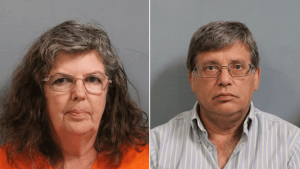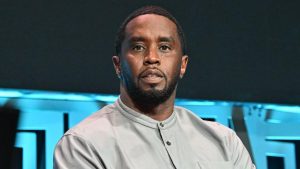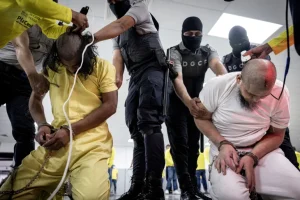The impact of the COVID-19 pandemic upon these individuals, who are often said to be “hidden in plain sight”, is difficult to quantify, but likely to be immense. As a recent report by the United Nations Office on Drugs and Crime concludes: “Human trafficking is the result of the failure of our societies and economies to protect the most vulnerable and enforce rights under national laws. They should not be additionally ‘punished’ during times of emergency.”[1]
On the 16th of July, the Bishop of Bristol, Rt Revd Vivienne Faull, tabled a question in the House of Lords on “The Impact of the COVID-19 pandemic on human trafficking in the UK”. The Minister of State for the Home Office, Baroness Williams of Trafford, responded that the government is “working closely” with law enforcement agencies “to ensure that high-risk modern slavery cases continue to be pursued and … any changes to the threat of modern slavery … assessed”. Further, that “essential services and support for victims during the COVID pandemic” would be delivered. When pressed on the specific issue of child victims, she said the government had been “very mindful of the vulnerability of children in all sorts of ways”.
Human trafficking is the result of the failure of our societies and economies to protect the most vulnerable and enforce rights under national laws.
The discussion only lasted a few minutes, and other than a few reassurances, a brief reference to some funding, and a promise of further investment, there was no detailed explanation of what action is actually being taken.
Poverty is one of the principle factors in making people susceptible to modern slavery, and the financial crisis created by COVID-19 has undoubtedly left victims especially vulnerable. The agricultural sector is well known to be a target of traffickers, and as farmers struggle to recruit workers, criminals are able to move in to exploit the gap in the employment market. Police inspections have been cut back; formal and informal support networks disrupted, making it all the easier for trafficking operations to hide. The human rights group ‘The Walk Free Foundation’, recently found that 75% of hospitality businesses are flouting anti-slavery legislation, with two-thirds of large hotel companies not having disclosed any information about the risk of slavery in their supply chains[2]. There has been a shift in priorities, with resources being diverted to limiting the spread of the virus and enforcing social distancing rules. Whilst necessary, there is a real risk that as the fight against modern slavery is deemed less of a priority, victims are becoming ‘collateral damage’ of the pandemic.
Lockdown and social distancing rules reinforce restriction and control of movement, already a common feature of modern slavery, making victims ever more invisible.
Exploiters, hit by the economic downturn, are looking to different means by which to profit, and victims may be forced to work in ever riskier, illegal, and unregulated sectors, such as the sex industry. Organised criminal networks are developing web-based activities, to take advantage of the time people now spend at home online. Children are particularly vulnerable to sexual abuse, grooming, and online child pornography. Police need to adapt quickly to develop their investigative practices to meet these everchanging needs, but communications between countries about organised criminal networks may be disrupted, and international investigations may be affected.
Lockdown and social distancing rules reinforce restriction and control of movement, already a common feature of modern slavery, making victims ever more invisible. The increased isolation will have exacerbated mental health issues and substance abuse. The reported rise in domestic violence, is likely to have had a particularly dramatic impact. The change to working practices has meant that there are fewer opportunities for victims to be identified through engagement with the authorities, for example, those who previously would have engaged with voluntary organisations working in prisons and immigration detention centres. Now such visits are far less readily undertaken, and those that are, are often by video link, making building a rapport difficult.
COVID-19 has not only potentially made it easier for organised criminal networks, but also more difficult for victims to be identified and provided the assistance and support that they need.
Where victims have been identified there are greater obstacles to accessing services, assistance and support. COVID-19 has caused housing shelters to partially suspend services, limit intake, or close because of reported infections. Victims of trafficking who have been provided temporary immigration documents or time-limited services might not be able to renew them easily. Court hearings and trials are subjected to lengthy waiting times and backlogs. Planned repatriations may not be possible, and it is unclear what arrangements have been made for those in detention. Lack of housing, healthcare, legal and other services increases vulnerabilities, and potential exposure to the virus. Delays risk victims and witnesses being lost as they lose patience - some may even disappear back into being re-trafficked with the obvious knock-on effects for arrests prosecutions and deterrence.
COVID-19 has not only potentially made it easier for organised criminal networks, but also more difficult for victims to be identified and provided the assistance and support that they need. As Barack Obama once reflected: “It ought to concern every person, because it is a debasement of our common humanity. It ought to concern every community, because it tears at our social fabric. It ought to concern every business, because it distorts markets. It ought to concern every nation, because it endangers public health and fuels violence and organised crime. I’m talking about the injustice, the outrage, of human trafficking, which must be called by its true name - modern slavery”[3].
Riel Karmy-Jones QC is well known for her work in the field of Human Trafficking and Modern Slavery having appeared in a number of high profile cases. She is a contributing editor to the Modern Slavery sections in both Archbold and Rook and Ward on Sexual Offences.
For more info: https://www.redlionchambers.co.uk/barrister/riel-karmy-jones-qc/
[1] Preliminary findings on the Impact of COVID-19 on the Trafficking in Persons, UNODC
https://www.unodc.org/documents/Advocacy-Section/HTMSS_Thematic_Brief_on_COVID-19.pdf
[2] https://uk.reuters.com/article/britain-slavery-hotels/major-uk-hotels-found-failing-to-combat-threat-of-modern-slavery-idUKL8N2803CG; https://www.theyworkforyou.com/lords/?id=2020-07-16a.1751.0
[3] President Barack Obama's remarks at Clinton Global Initiative, New York City, obamawhitehouse.archives.gov. September 23, 2014





















